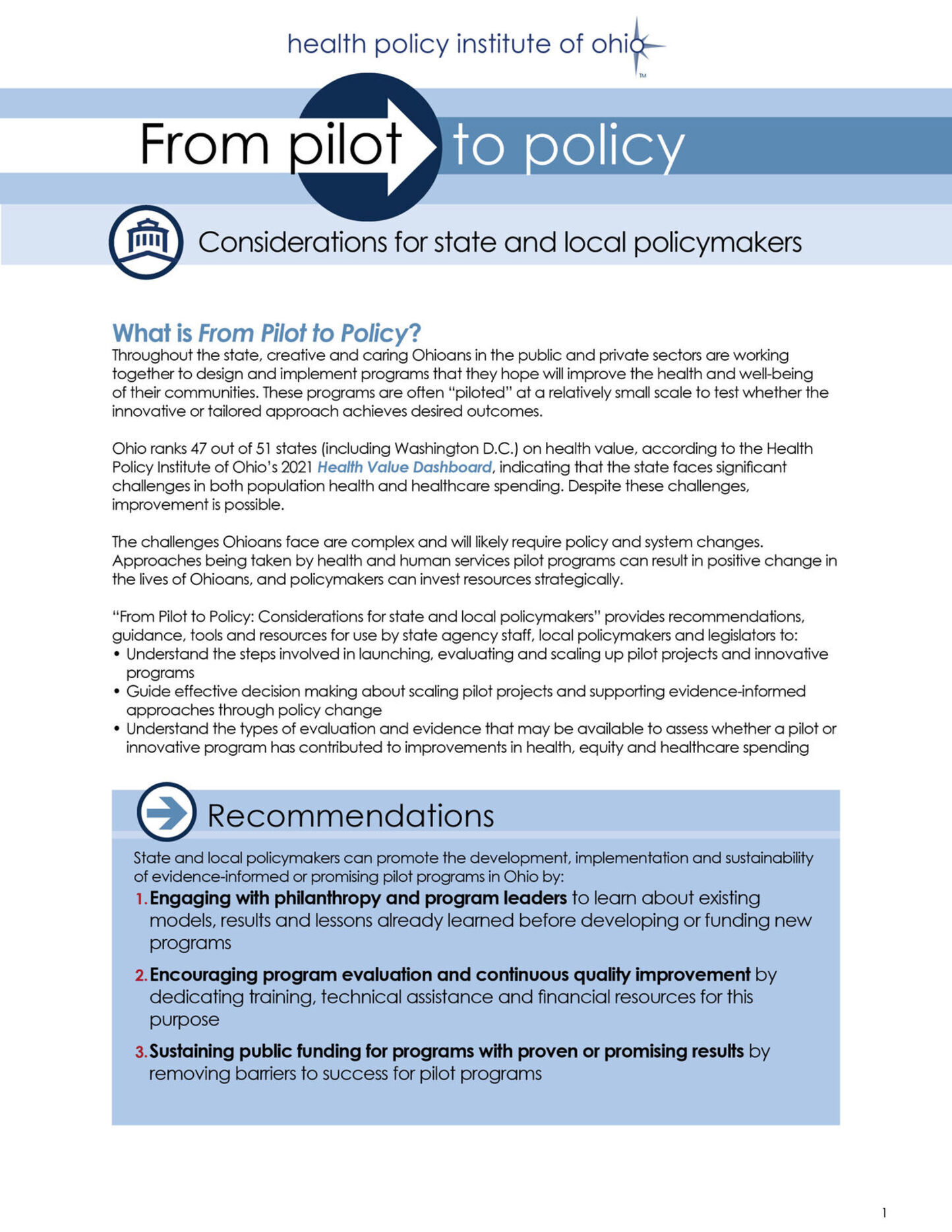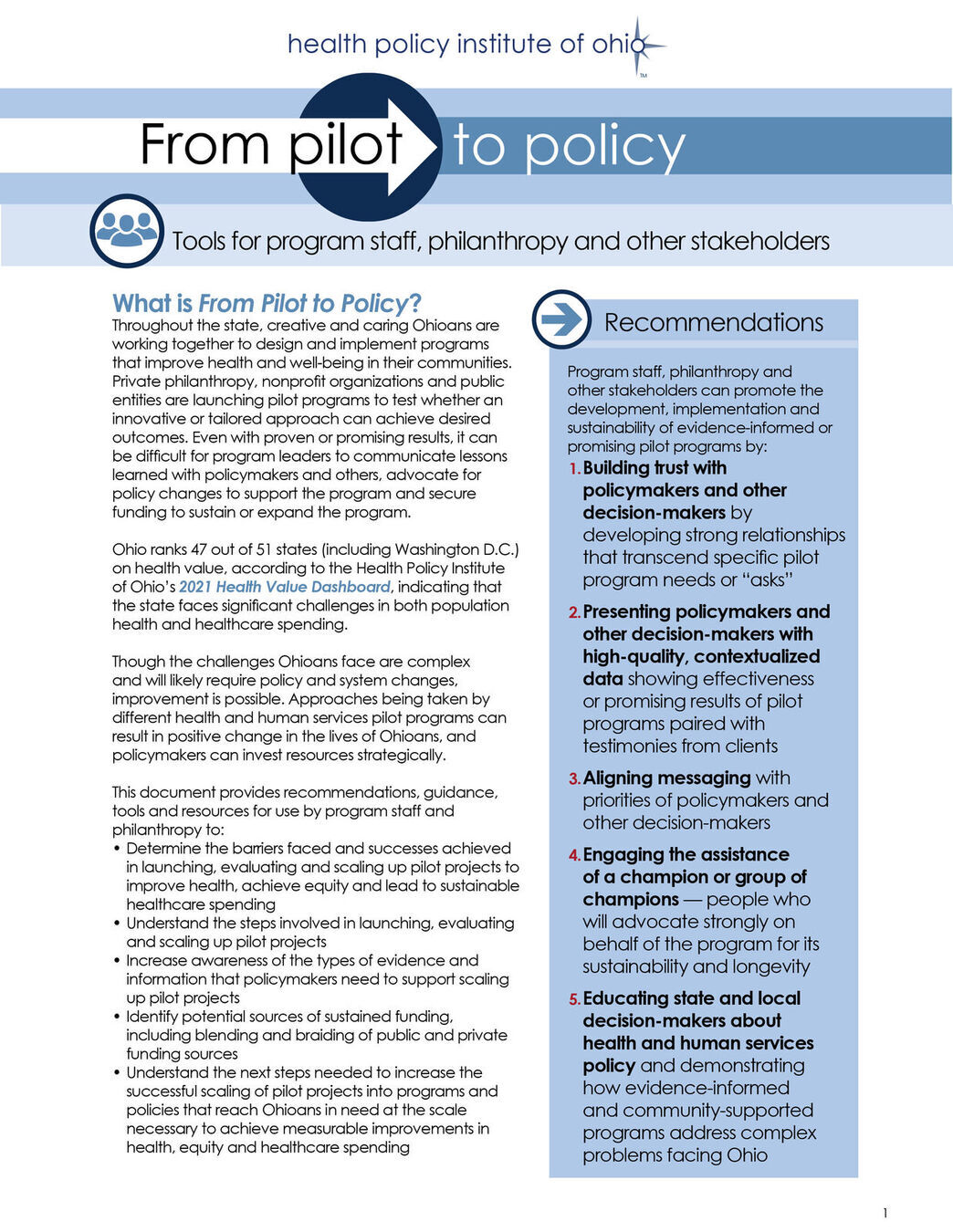From Pilot to Policy
HPIO has created two “From Pilot to Policy” briefs to assist stakeholders and policymakers in taking lessons learned from promising health and human services pilot programs and developing policy and systems change.
To develop “From Pilot to Policy,” HPIO conducted 11 key-informant interviews with 13 experts in Ohio, including current and former policymakers, program staff and individuals involved with state policymaking. Insights shared in the key-informant interviews, as well as key quotes from the interviews, are included throughout these documents.
Pilot programs were defined as programs that are limited in size or duration, at least initially, and implemented with the goal of evaluating or demonstrating effectiveness so that they can potentially be expanded to reach more people in the future. Key informants gave many examples of health and human services pilot programs launched in Ohio in recent years, including medical-legal partnerships, Healthy Beginnings at Home, Step Up to Quality and pay-for-success programs associated with ResultsOHIO.
Funding for this project was provided through a grant from bi3, a philanthropic initiative of Bethesda Inc., and HPIO’s other core funders.
Considerations for state and local policymakers
Key Recommendations
State and local policymakers can promote the development, implementation and sustainability of evidence-informed or promising pilot programs in Ohio by:
- Engaging with philanthropy and program leaders to learn about existing models, results and lessons already learned before developing or funding new programs
- Encouraging program evaluation and continuous quality improvement by dedicating training, technical assistance and financial resources for this purpose
- Sustaining public funding for programs with proven or promising results by removing barriers to success for pilot programs
Tools for program staff, philanthropy and other stakeholders
Key Recommendations
Program staff, philanthropy and other stakeholders can promote the development, implementation and sustainability of evidence-informed or promising pilot programs by:
- Building trust with policymakers and other decision-makers by developing strong relationships that transcend specific pilot program needs or “asks”
- Presenting policymakers and other decision-makers with high-quality, contextualized data showing effectiveness or promising results of pilot programs paired with testimonies from clients
- Aligning messaging with priorities of policymakers and other decision-makers
- Engaging the assistance of a champion or group of champions — people who will advocate strongly on behalf of the program for its sustainability and longevity
- Educating state and local decision-makers about health and human services policy and demonstrating how evidence-informed and community-supported programs address complex problems facing Ohio


